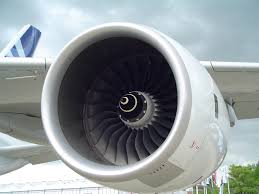Aviation industry in historic carbon offset accord
06 October, 2016
4 min read
By joining our newsletter, you agree to our Privacy Policy


Some 65 countries have already signalled they will take part in the voluntary phase of an historic industry carbon offset accord to be phased in next decade.
The International Civil Aviation Organisation’s 191 member states on Thursday agreed to implement the Carbon Offset and Reduction Scheme for International Aviation (CORSIA) at the UN-organisation’s 39th Assembly.
The world’s first global industry pollution agreement will start as a voluntary scheme from 2021 to 2026 but will then become mandatory across the aviation.
Airlines will have to buy carbon credits to offset growth in emissions, a move that is expected to account for less than 2 per cent of revenues but has raised concerns in some states about costs.
The scheme will include provisions to deal with special circumstances such as those of fast-growing airlines and airlines which have made significant investments to improve environmental performance already.
Aviation accounts for about 2 percent of the world’s carbon dioxide emissions but the size of the aircraft fleet is expected to double over the next two decades.
While the industry has been working to reduce carbon dioxide emissions through improved technology, more efficient operations and better flight planning, it needs the offset scheme to achieve its goal of carbon neutral growth from 2020.
Parties that have indicated they will sign up for the voluntary scheme include Singapore, the Uhnited Arab Emirates, the US, European States and some smaller nations. However, Russia and India are among those who have said they will not participate in the first phase.
“It has taken a great deal of effort and understanding to reach this stage, and I want to applaud the spirit of consensus and compromise demonstrated by our Member States, industry and civil society,” said ICAO Council rresident Olumuyiwa Benard Aliu. “We now have practical agreement and consensus on this issue backed by a large number of States who will voluntarily participate in the global market-based measure (GMBM) – and from its outset.
“This will permit the CORSIA to serve as a positive and sustainable contributor to global greenhouse gas emissions reduction.”
Airlines hailed the agreement as historic and an effective solution for airlines to manage their carbon footprint.
“This agreement ensures that the aviation industry’s economic and social contributions are matched with cutting-edge efforts on sustainability,’’ International Air Transport Association director general Alexandre de Juniac. “With CORSIA, aviation remains at the forefront of industries in combatting climate change.’’
De Juniac described the enthusiasm and commitment of states in the voluntary period as impressive.
“Even states that would normally not be required to participate—small island nations and developing economies—have shown their commitment by signing up,’’ he said. “The list of states volunteering for the first phase now numbers 65, giving CORSIA which we estimate will cover more than 80 per cent of growth post 2020. And we continue to encourage more states to join.’’
US aircraft manufacturer Boeing said the move complemented an earlier agreement by ICAO to establish CO2 standards for aircraft emissions.
"The market-based carbon-offset system and CO2 standard are integral to the four-pillar approach the industry is taking to stop the growth of emissions by 2020 and cut them in half by 2050 relative to 2005 levels,’’ Boeing said. “These efforts also include: investing in new, more efficient aircraft; improving operational performance of the in-service fleet; improving the efficiency of air traffic management and other infrastructure; and scaling up the use of sustainable alternative fuels.’’
However, some environmental groups have criticised the deal as inadequate.
Next Article
Qantas triples profit but misses mark

Get the latest news and updates straight to your inbox
No spam, no hassle, no fuss, just airline news direct to you.
By joining our newsletter, you agree to our Privacy Policy
Find us on social media
Comments
No comments yet, be the first to write one.
